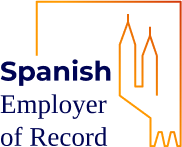31 March 2025
Digital nomad visa in Spain: Requirements, benefits, and alternatives
The rise of remote work has created new opportunities for professionals to live and work from almost anywhere in the world. Spain, known for its vibrant culture, stunning landscapes, and high quality of life, has become a sought-after destination for digital nomads.
In response to this growing trend, Spain introduced a digital nomad visa that allows remote workers to live and work legally in the country while employed by non-Spanish companies.
This article explores the details of the digital nomad visa, including who can apply, the requirements, benefits, and considerations for remote professionals and freelancers seeking to make Spain their home.
What is the digital nomad visa in Spain?
The digital nomad visa is a newly introduced visa category designed specifically for remote workers who are employed by non-Spanish companies or run their own freelance businesses. Unlike the non-lucrative visa, which prohibits any type of work, the digital nomad visa allows individuals to legally earn an income while residing in Spain.
This initiative makes Spain more accessible to a growing community of digital nomads and offers a straightforward pathway to live and work in the country without establishing a local business.
Who can apply for the digital nomad visa?
To qualify for the digital nomad visa, applicants must meet certain eligibility criteria:
- Remote employment or freelance work: Applicants need to demonstrate that their income comes from an employer or clients located outside of Spain. Employees must have a valid work contract, and freelancers should provide evidence of ongoing professional relationships or contracts with international clients.
- Minimum income requirements: Applicants must meet a financial threshold, typically proving a stable monthly income or sufficient savings. While exact figures may vary, the requirement ensures that digital nomads can support themselves during their stay. To qualify, applicants must prove they have a monthly minimum income of €2,400 (£2000). If you relocate with a partner and/or children, you may be subject to a higher income threshold.
- Professional background and allowed industries: Certain industries and professions are more commonly accepted for digital nomad visas. Applicants should be able to show relevant work experience, qualifications, or certifications that align with their remote role.
- Health insurance: Having valid health insurance that covers the applicant during their stay in Spain is mandatory. This ensures that digital nomads can access medical care without burdening the Spanish healthcare system. Check out this helpful expat guide for more guidance on relocating to Spain.
5 key requirements and application process
Applying for the digital nomad visa involves several steps and the submission of key documents:
1. Proof of remote work arrangements: Applicants must provide contracts, invoices, or letters from their foreign employer or clients that confirm their remote work status. Freelancers may need additional documentation to verify a stable income stream.
2. Financial documentation: Bank statements, tax returns, or proof of income showing that the applicant meets the minimum financial requirements are necessary.
3. Health insurance coverage: A valid health insurance policy must be included in the application, ideally from a provider recognized in Spain.
4. Application submission: Applications can often be initiated at the Spanish consulate in the applicant’s home country or online through Spanish immigration portals.
5. Processing times and common pitfalls: The processing timeline can vary, but it’s important to ensure all documents are accurate and complete to avoid rejections. Common reasons for rejections include insufficient financial proof, unclear work arrangements, or missing documents.
Pros and cons of the digital nomad visa
The digital nomad visa offers clear benefits, but weighing potential challenges before applying is important.
Benefits:
- Legal work authorization: The visa provides a legal pathway for remote workers to live in Spain while continuing to earn an income from their home country.
- Residency and healthcare access: Digital nomads can access Spain’s healthcare system and enjoy the benefits of living in a European country.
- Potential tax advantages: Certain applicants may be eligible for tax incentives, such as reduced tax rates under the Beckham Law, which can make living in Spain more financially attractive.
Challenges and limitations:
- Restrictions on working with Spanish clients: The digital nomad visa is designed for remote work with international clients. To qualify, at least 80% of your income must come from clients or employers based outside of Spain.
- Renewal requirements: Initially issued for 12 months, the visa can be renewed annually for up to five years. However, you must demonstrate that you continue to meet the income thresholds, are still working remotely, and comply with all Spanish tax regulations. Failing to meet these criteria can result in a denied renewal.
- Tax residency implications: Staying in Spain for more than 183 days in a year generally establishes tax residency, potentially subjecting digital nomads to Spanish tax regulations. Even with the visa’s tax benefits, seeking professional tax advice is vital to fully understand your obligations and maintain compliance.
Which option is right for you?
While the digital nomad visa is a strong solution for many remote professionals, it may not be the right fit for everyone. Depending on your situation, other legal and compliant options are available:
- If you only work with foreign clients and want a simple visa, the digital nomad visa could be a great choice. It allows you to reside in Spain without needing to register as a business locally, provided you meet the financial and insurance requirements.
- If you want full autonomy and plan to work with Spanish clients, becoming an autónomo (self-employed worker) is a suitable option. This gives you the flexibility to operate within the Spanish market but involves higher taxes, administrative responsibilities, and social security contributions.
- If you want a hassle-free way to work remotely from Spain for a non-Spanish company, a Spanish Employer of Record (EOR) can be the ideal alternative. The EOR acts as your legal employer in Spain, managing payroll, tax contributions, compliance, and employee benefits on behalf of your actual employer abroad. This solution is perfect for remote workers who want to keep their existing job with a foreign company while living in Spain — without dealing with complex visa paperwork or freelance bureaucracy.
Final thoughts: Visa or EOR?
Spain offers multiple paths for remote professionals looking to call the country home. The digital nomad visa is an excellent option for freelancers and remote employees who meet its criteria. However, it’s not the only solution.
By carefully evaluating your professional goals and understanding the pros and cons of each option — digital nomad visa, autónomo, or Employer of Record — you can choose the route that best suits your needs.
Contact us today to learn more about how an Employer of Record can help you work remotely in Spain with full legal compliance, employee benefits, and none of the hassle.



